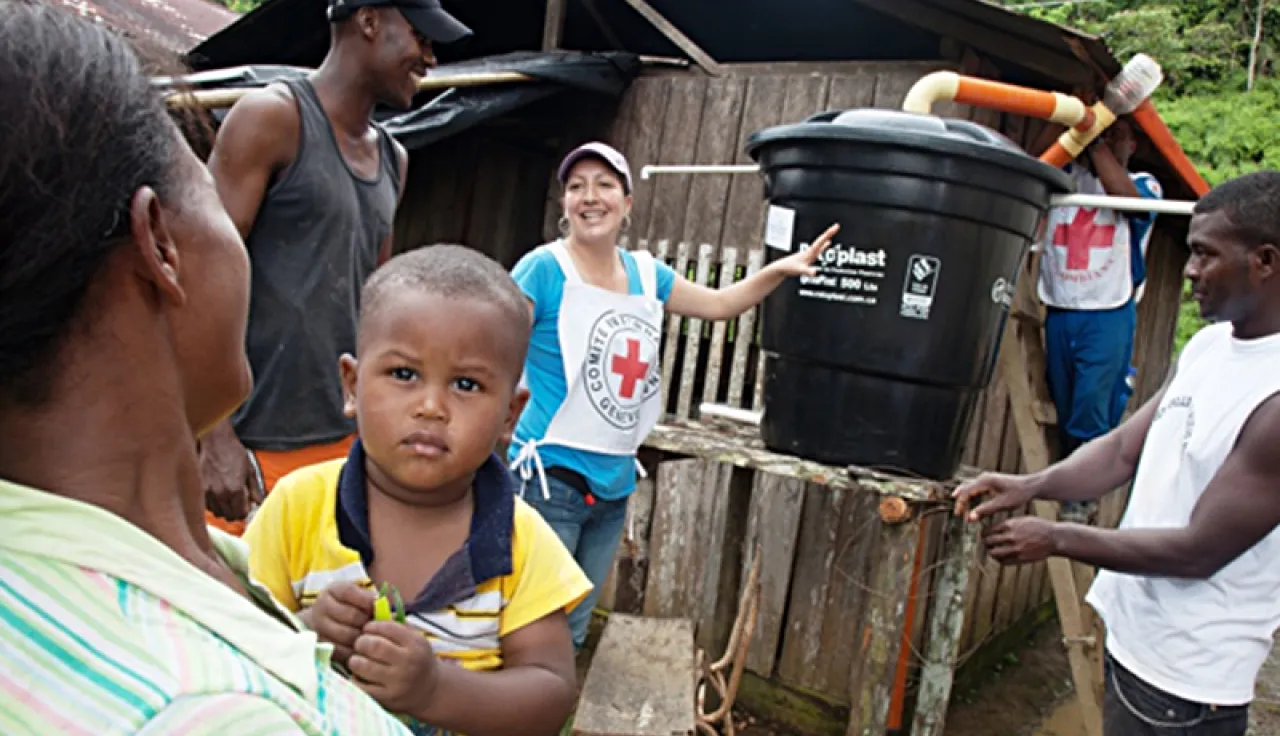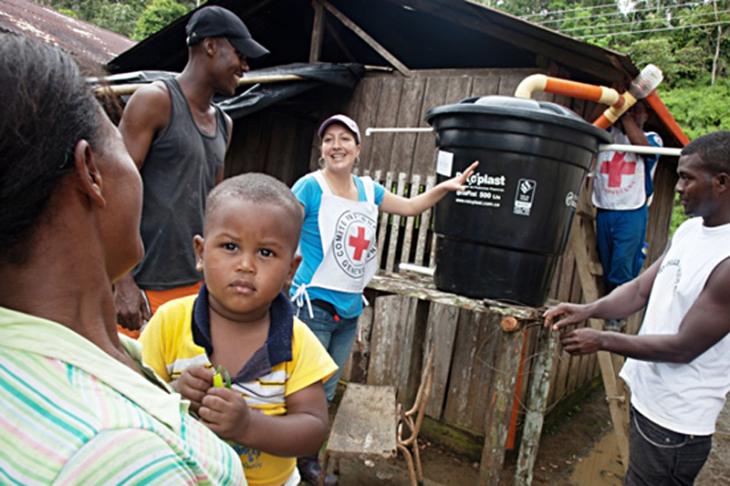Colombia: “When the water tanks arrived, the whole village celebrated”

Seven out of ten people in the village of Tamaje, on the Pacific Coast of Colombia, were falling ill from drinking contaminated water. The ICRC resolved the problem by installing rainwater storage tanks outside every house, the school and the local clinic.

The small village of Tamaje lies on the bank of the Patía River, an hour by boat from the Pacific Coast in south-west Colombia. The 400 people who live there have endured the effects of two decades of armed violence. “We see them dumping bodies in the river – people they’ve fought and killed further upstream,” says a man who has been forced to move several times, along with his wife and children.
To make matters worse, the river water is contaminated with waste and mercury from mining activity. “Up until a few months ago, we had no choice but to drink this water. We were getting skin rashes, stomach pains and diarrhoea.”
The village health worker says that it got to the point where seven out of ten people seeking treatment were ill because they had drunk contaminated water. The problem was even greater in the dry season. “We were practically having to drink mud.”
When ICRC delegates arrived in the area, they saw that the community urgently needed access to clean water. They worked with the community to figure out how best to address the problem. The decision was unanimous: they had to find a way to make the most of rainwater.
Water-storage tanks were installed outside each house, the local clinic and the school – 103 in total. The ICRC also provided all the necessary materials for collecting and distributing the water, including tubes, connectors and taps.
“When the water tanks arrived, the whole village celebrated. Everyone was so happy – especially the children, who would no longer have to fetch water. We knew that the Red Cross was giving us a big helping hand, but that we too had played our part.”
Local families got so involved with installing the tanks that in just a few hours the task was almost complete. The ICRC also trained 22 members of the community on how to improve local sanitation.
Some families completely rebuilt their wooden houses in line with the recommendations given. They moved their latrines and wood-burning stoves outside and marked out areas for waste disposal. They also dug ditches to drain a nearby swamp, which was another source of contamination.
As the tanks were installed at the height of summer, there was no sign of rain for a couple of weeks. The villagers began to get restless. Then, all of a sudden, the sky filled with lightning and it rained more than it had for a long time.
Clean water has completely changed the villagers’ lives. “Now, we’re healthier and we’re stronger as a community, because we’ve all agreed to work together. The local clinic and school can also function properly again.”
Around 400 adults, youth and children now have access to fresh, clean, drinking water. The armed conflict continues to rage in the area, but at least the dry season is less ruthless than before. In the village of Tamaje, hope is born again.



